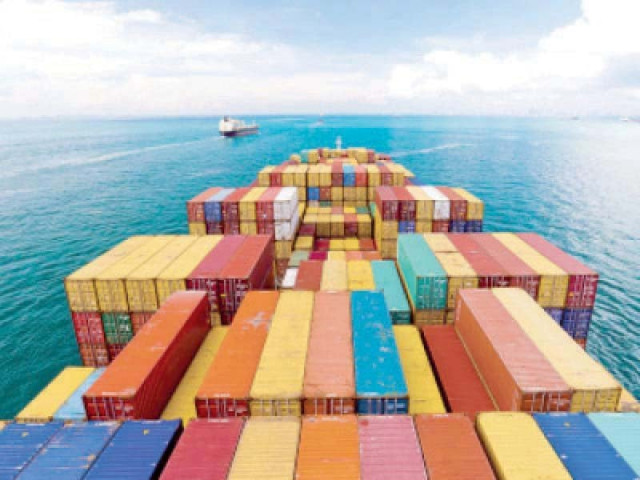Ban on imports was wrong: Qamar
Minister says country moved in wrong direction, opposes extension of ban

Commerce Minister Syed Naveed Qamar said on Wednesday that imposing the ban on imports was a wrong policy decision, extending his support for lifting the ban at the earliest.
Qamar made the remarks two days after the Pakistan Bureau of Statistics (PBS) reported that the import bill surged to a record $80 billion in the last fiscal year, up 55% despite the ban on import of around 41 goods almost two months ago.
“Recently we have moved in wrong direction by imposing the ban on imports but it was done in an extreme situation,” remarked the commerce minister while speaking at a trade seminar organised by the Policy Research Institute of Market Economy (PRIME) with the support of Friedrich Naumann Foundation (FNF) Pakistan.
The minister said that he would advocate against further extending the ban that had been imposed for two months and was going to lapse on July 18. “But everything is not in the hands of the Ministry of Commerce,” he said.
Qamar said that the import ban had proved counter-productive and “we will have to lift it soon”.
On May 19, the federal cabinet banned the import of around 41 items for two months to forestall a looming default. The Express Tribune reported at that time that the measure would be too little, as it would contain the import bill by hardly $600 million or less than 5% of the
projected imports.
Qamar said that the import ban was not a well-thought-out initiative by the government but it was aimed at temporary restraining imports.
He said that the promotion of exports by tapping new markets and expanding the export basket by reducing trade barriers was the ultimate way forward.
For the last fiscal year, the previous Pakistan Tehreek-e-Insaf (PTI) government had targeted to restrict imports at $55 billion, which shot up to $80 billion.
Prime Minister Shehbaz Sharif had initially given directives to contain imports by $2 billion
per month.
The Ministry of Commerce and the Federal Board of Revenue (FBR) prepared a plan to cut imports by $984 million a month through the ban and increase in regulatory duties.
Finance Minister Miftah Ismail was against imposing restrictions on imports and desired that the regulatory duties be
significantly increased.
The Economic Coordination Committee of the cabinet on Tuesday allowed clearing those goods that had arrived in Pakistan in contravention to the ban till June 30.
Tariff and non-tariff trade barriers put serious constraints on growth and sustainability, said Esther Perez Ruiz, Resident Representative of the International Monetary Fund (IMF) while advocating free trade.
Esther – a Spanish national – said that Spain’s integration with the EU in the 1980s and 1990s was a political aspiration for the country, which led to a massive economic transformation. However, Pakistan’s exports-to-GDP ratio reduced from 14% in 1990 to 10% in the 2000s.
The IMF resident representative said that Pakistan’s per capita GDP growth was very low compared with its
regional competitors.
To realise the export potential, Pakistan needs proactive policies: exchange rate flexibility, efficient allocation of resources, elimination of subsidies and creating a business-friendly environment,
she added.
The commerce minister said that politics had been the biggest impediment to regional trade. There are sanctions against Iran, Afghanistan faces security and economic issues, then there is India-Pakistan politics and there are also protagonists and antagonists of the China-Pakistan Economic Corridor (CPEC), said Qamar.
“It is virtually the Arabian Sea that is neutral to us for trade,” he said while explaining the limitations on regional trade.
He said that Pakistan was the big beneficiary of the GSP Plus scheme, hoping to win an extension for the next 10 years.
The minister said that fears of global recession might have implications for exports but hoped that unlike last year, this year there would be an increase in exports volume rather than only getting benefit from the higher global commodity prices.
Indonesian Ambassador Adam Mulawarman Tugio said that Pakistan should try to expand its trade with the Association of Southeast Asian Nations (Asean) by shifting its current strategy to deal with only individual members of Asean.
Published in The Express Tribune, July 7th, 2022.
Like Business on Facebook, follow @TribuneBiz on Twitter to stay informed and join in the conversation.


















COMMENTS
Comments are moderated and generally will be posted if they are on-topic and not abusive.
For more information, please see our Comments FAQ